Does filter coffee taste better than other coffee types? It’s a question on the mind of many coffee enthusiasts. Read on to find out more.
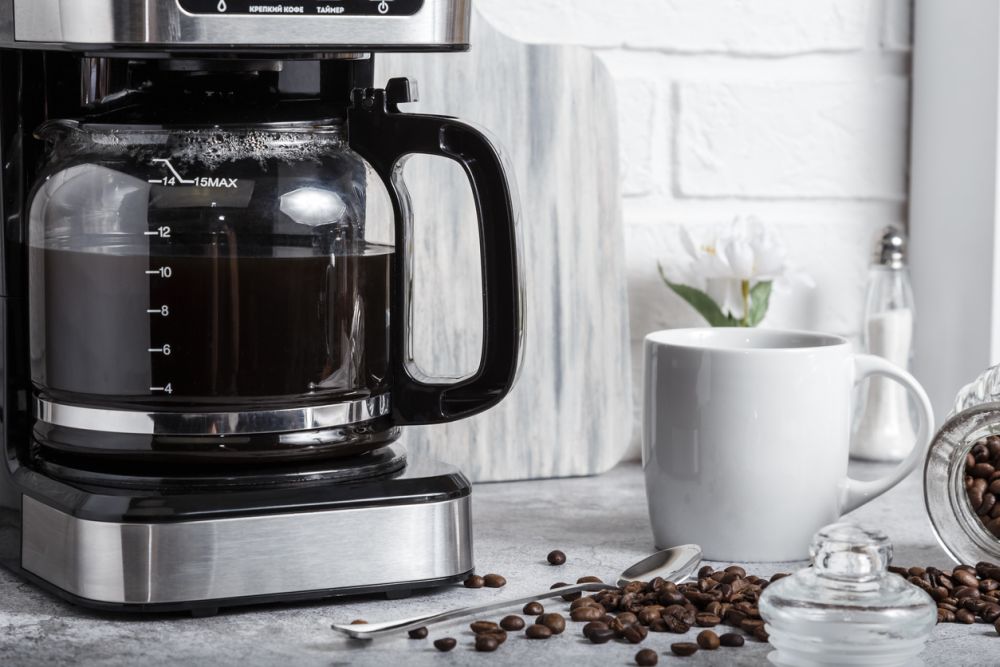
It’s possible to make coffee without a filter, but it’s not necessarily the better choice.
This article tries to explain how the taste of coffee compares to other coffee types, such as French press coffee or espresso. But first, let’s find out how filtered coffee is made. Then we can dive into the benefits of drinking filtered coffee.
Table of Contents
- How is filter coffee made?
- Does filter coffee taste better?
- The Benefits of Filter Coffee
- Comparing the taste of filter coffee to other coffee types
- FAQ
- Closing thoughts
Let’s start with how filter coffee is made.
How is Filter Coffee Made?
Filter coffee is made by pouring boiling water over ground coffee beans and allowing the mixture to brew through a filter. This gives you a smoother, richer-tasting cup of coffee compared to other brewing methods, making filter coffee pretty popular.
Another reason filter coffee is popular is that it’s significantly easier and quicker to make than other coffee-brewing methods, such as the French press.
A brewing method similar to filter coffee is drip coffee. The only difference between filter coffee and drip coffee is that, with drip coffee, the coffee maker pours water over the coffee grounds.
In the next section, discover if filter coffee tastes better than other coffee types.
Does Filter Coffee Taste Better?
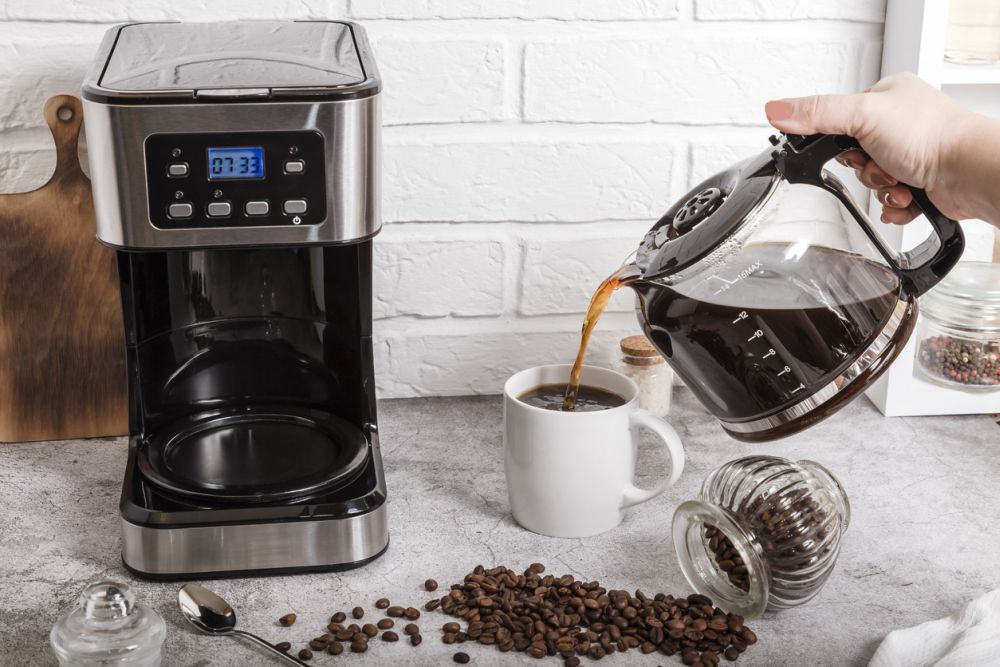
Whether or not coffee tastes better than other coffee-brewing methods is a matter of preference.
Each person perceives the taste of coffee differently. Some coffee drinkers would say that filter coffee tastes better than most other types of coffee. This is because filter coffee generally has a smoother, more consistent taste and is less bitter than other types of coffee.
Filter coffee has more complex flavor profiles when brewed appropriately. And the best filter coffee is when all coffee grounds come in contact evenly with hot water during the brewing process.
To describe the taste of filter coffee, it’s the perfect blend of sweetness, bitterness, and acidity.
In the next section, discover the advantages of drinking filter coffee.
The Benefits of Filter Coffee
Since taste is subjective, you may be wondering what other benefits filter coffee has over other types of coffee.
Here is how filter coffee is better than other coffee types when it comes to health, texture, acidity, caffeine, convenience, customization options, and required supplies.
Let’s start with the health benefits of filtered coffee.
Health
What we know for sure is that filter coffee is healthier than unfiltered coffee or no coffee at all, according to an observational study. It lowers the risk of cardiovascular disease. That’s because the filter catches the oily substances called diterpenes, which would otherwise end up in your cup of coffee.
Out of all filter coffee, black coffee is the healthiest since it doesn’t contain any carbs or sugars, and it’s low in sodium.
In the next section, learn more about the texture of filtered coffee.
Texture
Thanks to paper filters, filtered coffee is arguably the cleanest and most sediment-free cup of coffee you can make. This is because the filters trap all coffee grounds, giving you a smooth cup of coffee, free of any gritty texture.
In the next section, learn more about the acidity of filtered coffee.
Acidity
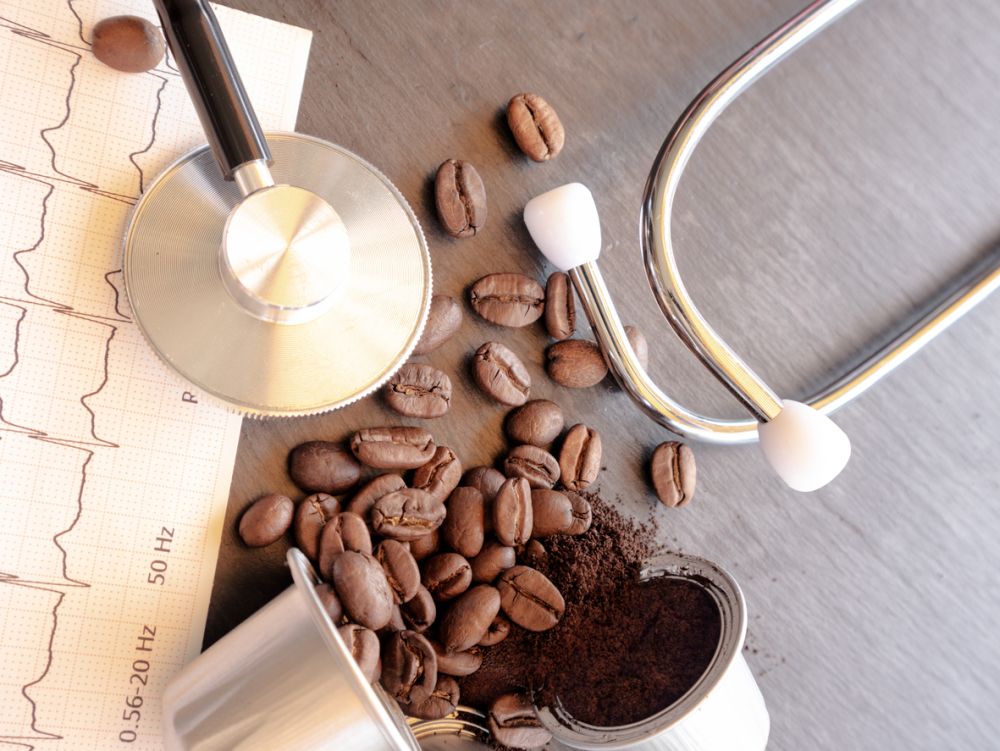
All types of coffee are acidic, but filtered coffee tends to be less acidic than others types, such as drip coffee or espresso.
In the case of filter coffee, hot water stays in contact with the coffee grounds long enough for the grounds to become under-extracted (acidic) and short enough for the ground not to be over-extracted.
Filter coffee is better for people with sensitive stomachs or heartburn.
In the next section, learn more about the caffeine contents of filtered coffee.
Caffeine
Filter coffee has plenty of caffeine for getting an energy boost: 96 mg of caffeine for a standard serving size of 8 oz. That’s 1.5x the amount of caffeine in an espresso shot. Given that it’s diluted by more water, the caffeine will be released over a longer period, offering you more energy throughout the day.
In the next section, learn more about the convenience of making filtered coffee.
Convenience
Convenience is probably the main reason filter coffee is so popular. It’s significantly easier and quicker to make filter coffee than other coffee types, such as French press coffee.
To make filter coffee, pour water over the coffee grounds; the grounds will seep through the filter and into your cup. It’s perfect for those who are often in a hurry and don’t have enough time to brew a pot of coffee.
You don’t even have to pour the water yourself if you’re using a drip-brew coffee machine. To make drip-brew coffee, add the paper filter and coffee grounds, fill the coffee maker’s reservoir with water and press a button.
In the next section, learn more about the customization options of filtered coffee.
Customization Options
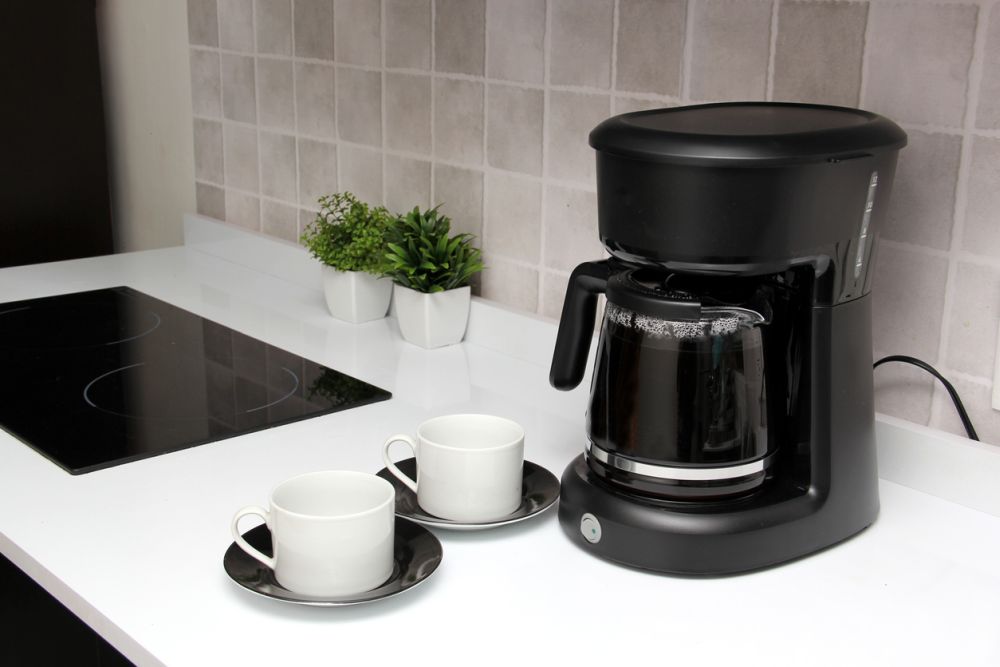
Filtered coffee allows more creativity so that you can make your coffee the way you like it.
Here are some examples of how you can personalize your filtered coffee:
- More concentrated – Reduce the amount of water used if you like your coffee more concentrated.
- Steep coffee for longer – Some filters have an anti-drip nub that doesn’t allow water to pour through, so that you can steep your coffee for longer, just like using a French press.
- Brewing speed – Drip coffee machines and pour-over coffee makers let you adjust the speed at which water is poured over the coffee grounds. So you can experiment with different brewing speeds to see how it affects the taste of your coffee.
- Even extraction – Pour-over brewers usually have a gooseneck kettle, so that you can pour water slowly and evenly over the grounds, creating a more consistent cup of coffee.
In the next section, learn more about the equipment required for making filtered coffee.
Required Equipment
Filtered coffee is probably the simplest type of coffee to make, without complicated equipment.
To prepare filtered coffee, you need a disposable or reusable filter, coffee grounds, hot water, and a cup.
The same supplies are necessary for preparing drip-brew coffee. But the drip-brew coffee maker has a built-in pot.
In the next section, find out how the taste of filtered coffee fairs against other kinds of coffee.
Comparing the Taste of Filter Coffee to Other Coffee Types
Perhaps the best way to describe the taste of filter coffee is by comparing it to other coffee types:
- Most people agree that French press coffee is more flavorful than filter coffee. When brewing French press coffee, the coffee grounds are steeped in hot water for longer, so more of the oils and flavors seep through.
- Espresso has an acquired taste since it’s not initially attractive to more people: you either love it or hate it. Compared to filtered coffee, espresso is more bitter and stronger.
- Moka pot coffee and percolator coffee is stronger and more bitter than filtered coffee.
- Cold-brew coffee has a smoother taste than filtered coffee since it doesn’t have any acidity. Plus, cold-brew coffee is less bitter.
The next section provides you with additional information about the taste of filtered coffee.
FAQ
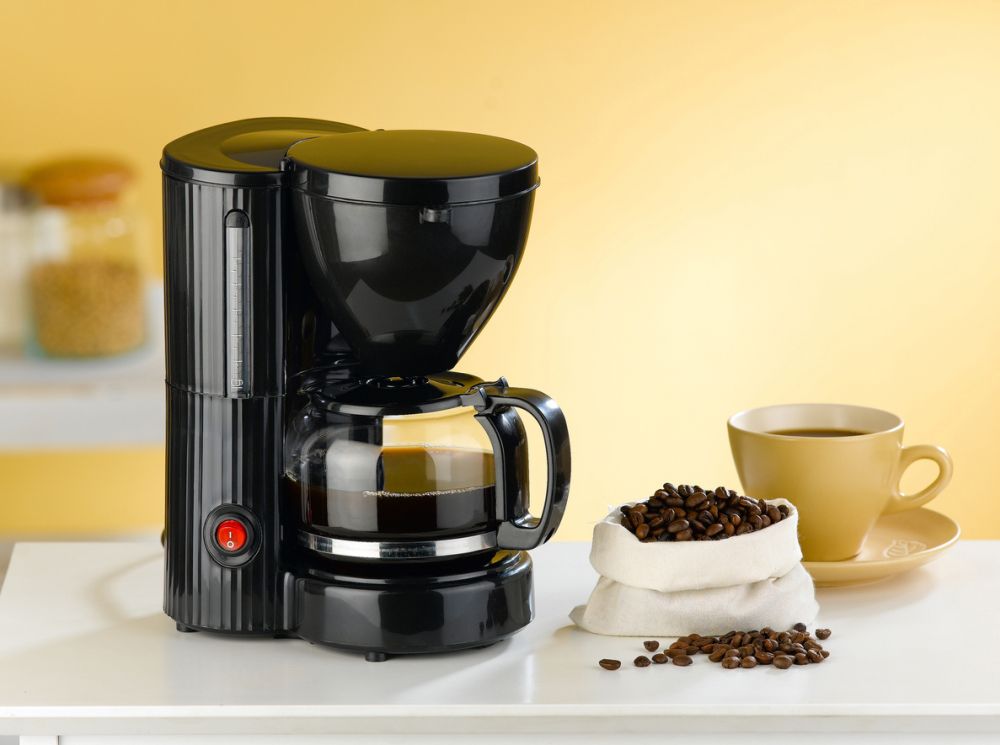
This section gives you simple answers to common questions about the taste of filtered coffee.
Does filter coffee taste better than instant?
Taste is a matter of personal preference, so it’s hard to say which type of coffee is better than the other. But many coffee drinkers agree that instant coffee lacks the flavor and aroma of freshly brewed coffee.
What does filter coffee taste like?
Filter coffee is best described as a mild, balanced cup of joe that’s not too bitter or strong. It’s also usually less acidic than other types of coffee.
Why does filter coffee taste different?
If your filtered coffee has a sour and acidic taste, it’s most likely under-extracted from using too coarse grinds. If the filtered coffee is bitter and flat, your grinds are probably too fine, or you’re over-extracting the coffee.
To get the best flavor from your filtered coffee, use a medium or medium-fine grind and adjust your brewing time based on the taste.
Why is it good to filter coffee?
Filtered coffee doesn’t have any sediment or other impurities since these are trapped by the paper filter, resulting in a cleaner cup of coffee. The paper filter also catches oils responsible for raising your cholesterol level and increasing the risk of heart diseases.
Is filter coffee stronger than espresso?
The answer is yes and no since it’s all a matter of whether you’re asking about caffeine concentration or the total amount of caffeine.
Out of espresso and filter coffee, espresso is more concentrated since it contains about 65 mg of caffeine per 1-1.25 oz. shot. While an 8-oz cup of filtered coffee is diluted, you’ll still ingest around 95-100 mg of caffeine that gets released slower than espresso throughout the day.
The next and final section summarizes the entire article on the taste of filtered coffee.
Closing Thoughts
The debate over which coffee tastes better will always be subjective.
While some people prefer espresso and cold brew for their bold flavor, others might like filtered coffee for its convenience and mild taste.
If you’re looking for a coffee that’s easy to make and perfect for your morning cup of joe, filter coffee may just be what you need. But if you crave strong flavors or love to experiment with different types of coffee, there are plenty of other options out there for you.
What do you like most about filtered coffee? Share your thoughts in the comments below!
Leave a Reply